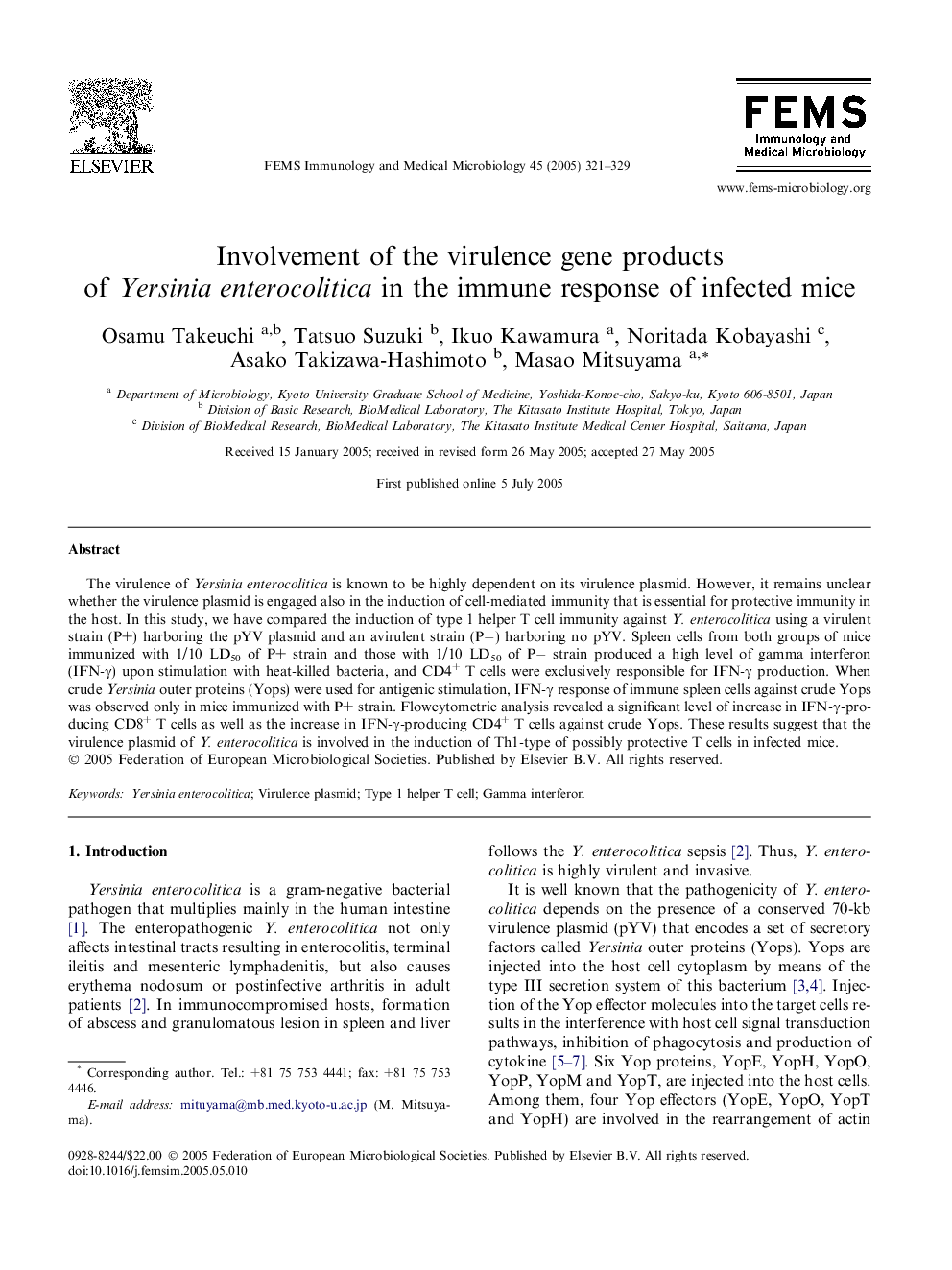| Article ID | Journal | Published Year | Pages | File Type |
|---|---|---|---|---|
| 9277994 | FEMS Immunology and Medical Microbiology | 2005 | 9 Pages |
Abstract
The virulence of Yersinia enterocolitica is known to be highly dependent on its virulence plasmid. However, it remains unclear whether the virulence plasmid is engaged also in the induction of cell-mediated immunity that is essential for protective immunity in the host. In this study, we have compared the induction of type 1 helper T cell immunity against Y. enterocolitica using a virulent strain (P+) harboring the pYV plasmid and an avirulent strain (Pâ) harboring no pYV. Spleen cells from both groups of mice immunized with 1/10 LD50 of P+ strain and those with 1/10 LD50 of Pâ strain produced a high level of gamma interferon (IFN-γ) upon stimulation with heat-killed bacteria, and CD4+ T cells were exclusively responsible for IFN-γ production. When crude Yersinia outer proteins (Yops) were used for antigenic stimulation, IFN-γ response of immune spleen cells against crude Yops was observed only in mice immunized with P+ strain. Flowcytometric analysis revealed a significant level of increase in IFN-γ-producing CD8+ T cells as well as the increase in IFN-γ-producing CD4+ T cells against crude Yops. These results suggest that the virulence plasmid of Y. enterocolitica is involved in the induction of Th1-type of possibly protective T cells in infected mice.
Related Topics
Life Sciences
Immunology and Microbiology
Immunology
Authors
Osamu Takeuchi, Tatsuo Suzuki, Ikuo Kawamura, Noritada Kobayashi, Asako Takizawa-Hashimoto, Masao Mitsuyama,
